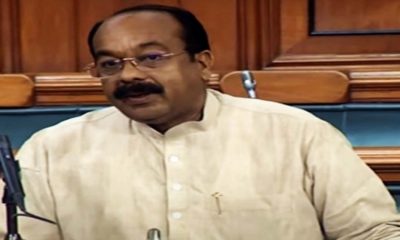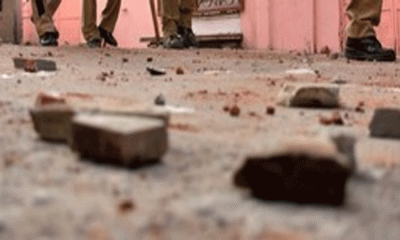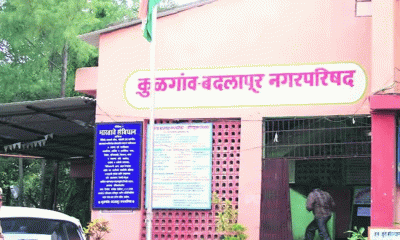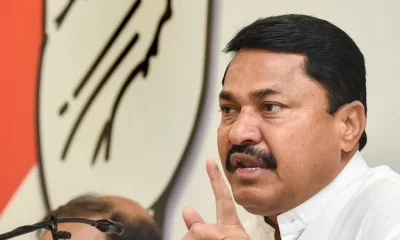Politics
Will Kejriwal attend New Delhi Municipal Council meeting today, asks BJP
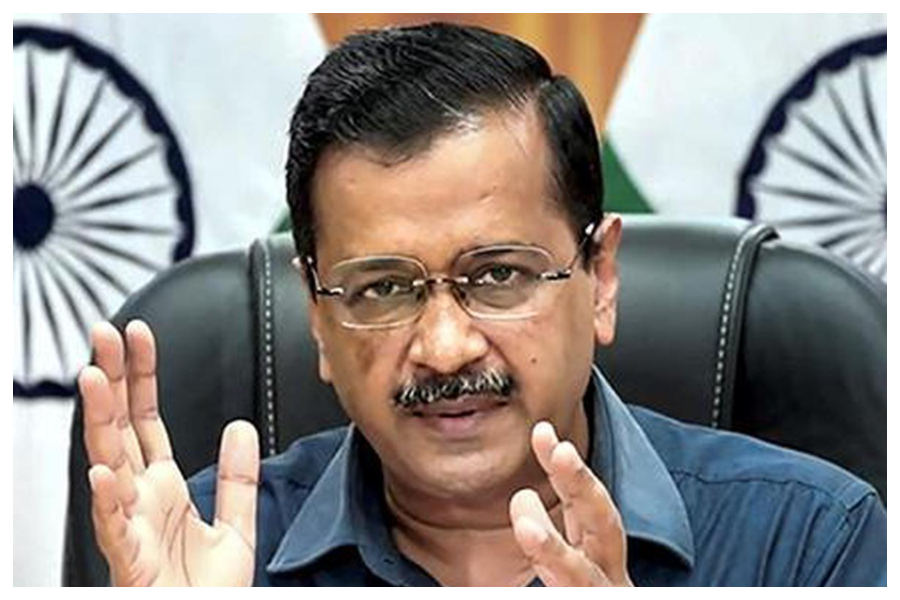
Amid the reports of a shortage of water in Lutyens Delhi, the BJP has questioned Chief Minister Arvind Kejriwal on his staying away from the New Delhi Municipal Council (NDMC) meetings in the past and asked whether he will attend the meeting on Wednesday.
The BJP also said the chief minister has skipped the last four meetings of the Council.
The saffron party claimed that Kejriwal skipped the meetings as he had nothing to show in terms of delivery.
Quoting NDMC member Kuljeet Singh Chahal, in-charge of BJP’s national information and technology department Amit Malviya tweeted, “Arvind Kejriwal has skipped the last four meetings of the NDMC Council because he has nothing to show in terms of delivery. Delhi Govt has failed to provide even clean drinking water. This is Delhi model of Kejriwal? Will “Delhi ke Malik (owner) attend today’s meeting or go in hiding, again?.”
On Tuesday, Chahal wrote a letter to Kejriwal about his regular absence from the Council meetings. “Kejriwal has not attended the several Council meetings dated March 31, 2021, January 7, 2022, February 23, 2022 and March 30, 2022 in which 26 items were approved in the interest of public in the absence of chief minister like ‘Har Ghar Jal Yojna’, ‘Swachata-Chatravriti’, ‘Redevelopment of Hanuman Vatika’,” Chahal said.
Chahal also wrote that the absence of Kejriwal also showed that he was boycotting these schemes. “He is always talking about the Delhi model but his mindset is zero in the name of development in the NDMC area,” Chahal said.
Chahal, also Delhi BJP general secretary, urged the chief minister to attend the NDMC Council meetings in the interest, benefit and welfare of area residents, who voted and elected him as MLA.
Chahal asked Kejriwal about the “fears behind not attending the NDMC Council meeting”.
Maharashtra
Conspiracy to defame Sameer Wankhede… serious accusation of protecting Cordelia Cruz from drug case, Judge Irfan Shaikh dismissed after disciplinary committee report

Mumbai: An attempt to defame former NCB zonal director Sameer Wankhede has started once again. Now the latest case is the dismissal of Judge Irfan Sheikh, in which this allegation has been made against Sameer Wankhede. In the Cordelia Cruz case, instead of arresting Judge Irfan Sheikh, his team has saved the judge. Additional Metropolitan Magistrate Irfan Sheikh was then posted as a judge of the Splendid Court. He was currently serving as a judge of Palghar and Thana District. After serious allegations like misuse of office, use of seized drugs, hitting a taxi with his car on Rafi Ahmed Kidwai Marg while intoxicated, abusing his powers along with having disproportionate wealth, hiding his identity at Nair Hospital and registering a false and misleading address, and getting the car back without depositing it, the High Court has dismissed the judge from service under disciplinary action. When the judge was investigated in the case, the allegations were found to be true and Irfan Sheikh was dismissed from his job. There is no mention of the Cordelia Cruz drug case anywhere in it, but Sameer Wankhede is being accused of helping the judge. Sameer Wankhede has categorically denied this and said that there is no mention of the Cordelia Cruz drug case in the police report or the judicial committee report.
When the documents and copies were obtained in this regard, there was no mention of the Cordelia Cruise drug case. Sameer Wankhede is a constant target of Bollywood, so Shah Rukh Khan’s company Red Chillies Entertainment had prepared a series of bad Bollywood stories against him, against which Sameer Wankhede has filed a defamation case in the Delhi High Court and its hearing is likely to be held soon. The series of slander against Sameer Wankhede and his family has become long and this is the reason why the attempt to defame Sameer Wankhede has intensified in the Irfan Sheikh case as well, but Sameer Wankhede or the NCB team have no role or involvement in this matter.
Maharashtra
Muslims should stop pasting stickers of I Love Muhammad, criticism of Somaiya and Nitesh Rane, accusation of Abu Asim Azmi of working on a hate agenda
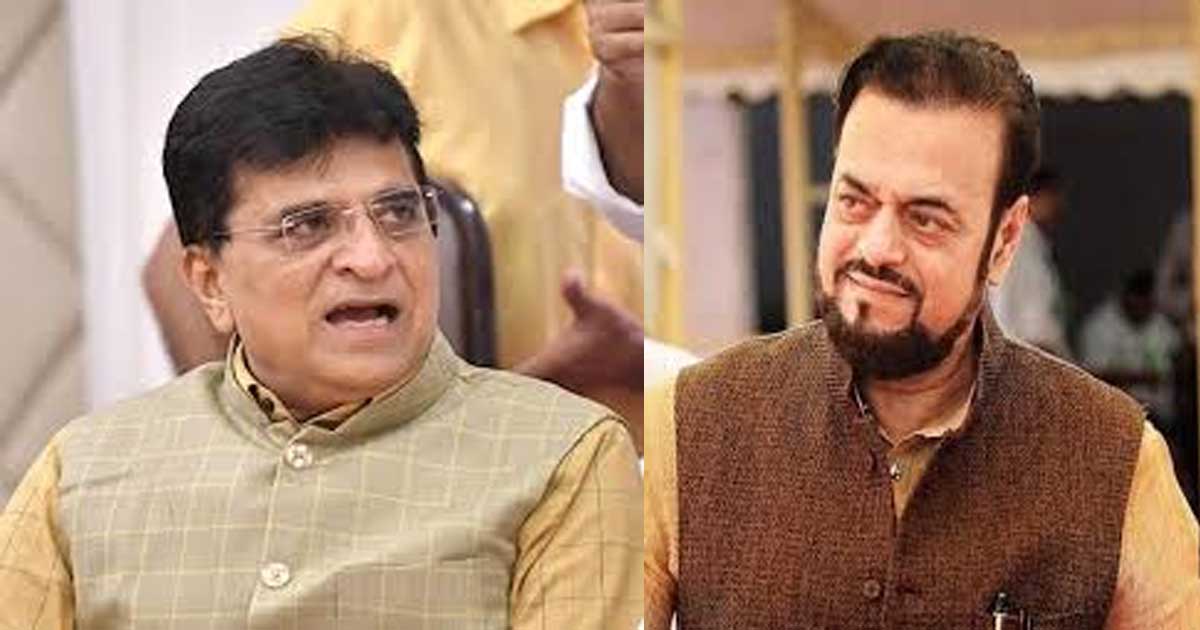
Mumbai: Maharashtra Samajwadi Party leader and MLA Abu Asim Azmi has appealed to Muslims to follow the footsteps and teachings of the Prophet Muhammad (peace be upon him) and stop pasting stickers of I Love Muhammad because this government is taking action against pasting stickers and is also raining down batons. He said that the unrest being created over the I Love Muhammad sticker is a threat to the country, but despite this, the government is taking action against Muslims. On the Bareilly violence, Azmi said that I Love Muhammad is now an opportunity for sectarians under the guise of which they are running a hateful agenda. Therefore, now Muslims should love him with their true teachings and heart instead of pasting stickers of I Love Muhammad and should avoid pasting stickers. He said that Kirit Somaiya shows provocations about Ai Lo Muhammad and Muslims every day, along with that, the stickers that were pasted in Kurla were pasted with the will of the vehicle owners, there is no need to create a fuss and uproar over it, but Kirit Somaiya has no value, that is why he runs a hate agenda every day. Responding to BJP leader Nitesh Rane’s threat, MLA Abu Asim Azmi said that Nitesh Rane has no other business except spreading hatred, that is why I do not want to respond to his words. Elephants walk, dogs bark. He said that Nitesh Rane cannot even do Hanuman Chalisa and Bhagwat Gita Puja Paat properly, he only does politics in the name of Ram.
National News
Thane, South Mumbai & Eastern Suburbs To Face 10% Water Cut From October 7 To 9 | Check If Your Area Is Affected

Mumbai, Thane: Residents across Thane and several parts of Mumbai are set to experience a 10 per cent reduction in water supply as the Brihanmumbai Municipal Corporation (BMC) undertakes the upgradation of electricity meters at the Pise and Panjrapur power stations. The Thane Municipal Corporation (TMC) confirmed that the cut will be in effect from Tuesday, 7 October to Thursday, 9 October 2025.
Out of Thane’s total water supply, 85 million litres per day (MLD) comes from BMC’s sources. The ongoing electrical work is expected to impact multiple areas across Thane and Mumbai during the three-day maintenance period.
According to the Thane Municipal Corporation, the areas that will face reduced water supply include Kopri Dhobighat, Kopri Kanhaiya Nagar, Gandhi Nagar, Anand Nagar, Indiranagar, Bhatwadi, Tekdi Bangla Water Tank, Gavdevi (Luiswadi) Water Tank, Balkum Pada No.1, Ambedkar Nagar, Laxmi Nagar, Kajuwadi, Jijamata Nagar, Jai Bhavani Nagar, Dnyaneshwar Nagar, Ambika Nagar, Karwalo Nagar, Shivshakti Nagar, Janata Slum, Padval Nagar, Shivaji Nagar, Kisan Nagar No.1, Kisan Nagar No.2, Ramchandra Nagar 1, Sainath Nagar, Namdev Wadi, Raghunath Nagar, Luiswadi, Hajuri, Pachpakhadi, and Naupada.
The civic body has appealed to residents to store enough water beforehand and use it judiciously throughout the period to avoid inconvenience. Authorities have also urged the public to cooperate while the upgrade work is completed.
The BMC announced that parts of South Mumbai and the eastern suburbs will also experience a 10 per cent water cut between October 7 and 9. The work includes upgrading 100 kilowatt (KW) electrical meters at the Pise and Panjrapur water treatment facilities in Thane. Maintenance activity will take place daily from 12.30 pm to 3 pm, which is expected to affect supply in several zones temporarily.
A Ward: Fort, Colaba, Marine Drive, Nariman Point
B Ward: Masjid Bunder, Mohd. Ali Road, Dongri, Bhendi Bazar
E Ward: Byculla, Agripada, Nagpada, Dockyard Road, Reay Road
F-South Ward: Parel, Lalbaug, Hindmata, Lower Parel
F-North Ward: Matunga, Sion
M-East Ward: Chembur East, Govandi, Mankhurd, Trombay, Cheeta Camp, Deonar Municipal Colony, Anushakti Nagar
M-West Ward: Chembur West
L Ward: Kurla East
N Ward: Vikhroli, Ghatkopar
S Ward: Bhandup, Nahur, Kanjurmarg, Vikhroli East
T Ward: Mulund
Both civic bodies have requested residents to plan their water usage carefully and avoid wastage during the maintenance period. Supply is expected to return to normal from Friday, 10 October 2025.
-

 Crime3 years ago
Crime3 years agoClass 10 student jumps to death in Jaipur
-

 Maharashtra1 year ago
Maharashtra1 year agoMumbai Local Train Update: Central Railway’s New Timetable Comes Into Effect; Check Full List Of Revised Timings & Stations
-

 Maharashtra12 months ago
Maharashtra12 months agoMumbai To Go Toll-Free Tonight! Maharashtra Govt Announces Complete Toll Waiver For Light Motor Vehicles At All 5 Entry Points Of City
-

 Maharashtra1 year ago
Maharashtra1 year agoFalse photo of Imtiaz Jaleel’s rally, exposing the fooling conspiracy
-

 National News12 months ago
National News12 months agoMinistry of Railways rolls out Special Drive 4.0 with focus on digitisation, cleanliness, inclusiveness and grievance redressal
-

 Maharashtra11 months ago
Maharashtra11 months agoMaharashtra Elections 2024: Mumbai Metro & BEST Services Extended Till Midnight On Voting Day
-

 National News1 year ago
National News1 year agoJ&K: 4 Jawans Killed, 28 Injured After Bus Carrying BSF Personnel For Poll Duty Falls Into Gorge In Budgam; Terrifying Visuals Surface
-

 Crime12 months ago
Crime12 months agoBaba Siddique Murder: Mumbai Police Unable To Get Lawrence Bishnoi Custody Due To Home Ministry Order, Says Report



